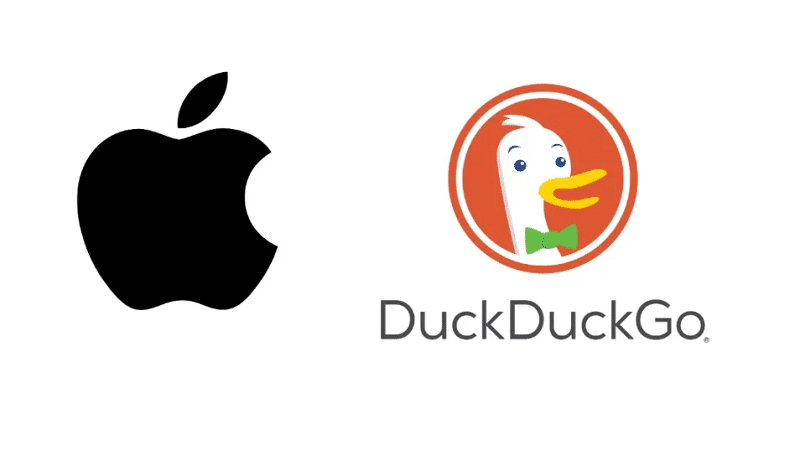Google’s Antitrust Case: Apple’s Rejection of DuckDuckGo and Bing as Safari’s Default Engine
In the realm of web browsers, Apple’s Safari stands as a formidable player, boasting over 850 million users on iOS and macOS. With such a massive user base, it’s no wonder that Google shells out over $10 billion annually to secure its position as Safari’s default search engine. However, an intriguing revelation has emerged from the depths of an ongoing antitrust case against Google: Apple once contemplated replacing Google with DuckDuckGo as its default Safari engine.
Why Google Reigns Supreme in Apple’s Safari Browser
While it may seem like Google’s search prowess and market dominance are the reasons behind its default status on Safari, the truth is more financially driven. Apple and Google have maintained a lucrative agreement where Google pays billions to Apple each year, ensuring its place as the go-to search engine on the Safari browser.
However, Google’s stronghold on Safari has come under intense scrutiny, leading to an antitrust case in the United States. Allegations of monopolistic behavior and unethical competition practices have further added to Google’s legal woes.
As part of this ongoing case, an intriguing revelation has emerged: Apple had considered DuckDuckGo as a potential replacement for Google.
The Long-standing Connection Between DuckDuckGo and Apple
According to official records unsealed during the antitrust proceedings, Apple engaged in over 20 meetings with DuckDuckGo. During these discussions, it became apparent that Apple had incorporated several privacy-focused features from DuckDuckGo into the Safari browser. This partnership led DuckDuckGo to propose itself as the default search engine for Safari.
DuckDuckGo even offered the option of being the search engine exclusively for private browsing mode. However, Apple ultimately decided against the switch, as testified by Apple’s Senior Vice President, John Giannandrea.
Doubts About DuckDuckGo’s Privacy Claims
John Giannandrea further expressed concerns about DuckDuckGo’s privacy claims. While DuckDuckGo has marketed itself as a privacy-centric browser, it relies on Microsoft’s Bing to retrieve search results. This reliance raised doubts about DuckDuckGo’s true level of privacy, as it might share some information with Microsoft, potentially compromising user privacy.
Tim Cook’s Quest for a New Safari Engine
Apple’s CEO, Tim Cook, was also actively involved in the quest for a new Safari search engine. Cook urged John Giannandrea to explore the possibility of making Microsoft Bing the default search engine for Safari. This suggestion led to multiple meetings between Apple and Microsoft in 2018, as they explored the potential for a joint venture.
The discussions escalated to the point where Apple even considered purchasing Bing from Microsoft in 2020. However, thorough examination revealed that Google’s search results outperformed Bing’s in most cases, especially concerning language-based searches.
Microsoft’s Unsuccessful Bid
Microsoft’s CEO, Satya Nadella, acknowledged that the company was willing to go to great lengths, even incurring significant financial losses, to persuade Apple to adopt Bing as the default Safari search engine. However, Apple ultimately rejected Microsoft’s offer for undisclosed reasons, maintaining its alliance with Google.
The exact reasons behind Apple’s decision to stick with Google as the default Safari engine and reject offers from DuckDuckGo and Bing remain shrouded in mystery. The ongoing antitrust case could potentially unveil more documents shedding light on this matter.
The Legal Implications
Google’s hefty annual payment to Apple for its default search engine status on Safari may have unintended consequences for both tech giants during this antitrust case. Google’s financial influence could be seen as an unfair advantage in the marketplace, while Apple may face scrutiny for accepting Google’s substantial funds.
In conclusion, the world of tech giants is rarely straightforward, and the interplay between companies like Apple, Google, and DuckDuckGo can be both intricate and intriguing. As the antitrust case unfolds, the world eagerly awaits further revelations about the dynamics at play behind the scenes of Safari’s default search engine.
FAQs
1. Why does Google pay Apple billions for Safari’s default search engine status?
Google pays Apple to secure its position as Safari’s default search engine, gaining access to a massive user base.
2. Why did Apple reject DuckDuckGo as Safari’s default engine?
Despite a partnership and discussions, Apple had concerns about DuckDuckGo’s privacy claims and ultimately decided against the switch.
3. What prompted Tim Cook to consider Microsoft Bing as an alternative search engine for Safari?
Tim Cook’s push for Bing stemmed from a desire to explore alternatives to Google and improve Safari’s search capabilities.
4. Did Microsoft make a significant effort to secure Bing as Safari’s default engine?
Yes, Microsoft was willing to make substantial efforts, including financial sacrifices, to convince Apple to choose Bing as the default Safari search engine.
5. What legal implications could Google and Apple face in the antitrust case?
Google may face allegations of using financial power to gain an edge, while Apple could be questioned for accepting Google’s substantial payments in this antitrust case.











